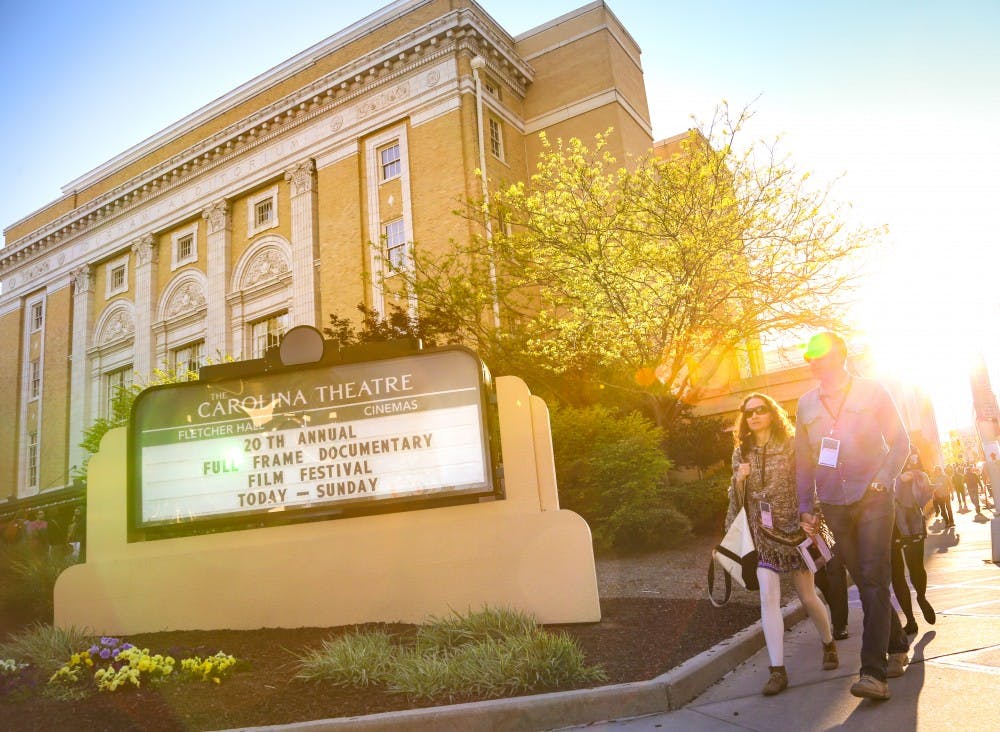Two weeks ago, more than 10,000 people poured into Durham during a four-day stretch to partake in Full Frame Documentary Film Festival’s 20th annual celebration of documentary filmmaking. The thought alone of that many individuals crammed into such a small area of the city was probably overwhelming to most Durham-dwellers—how would their daily commute be affected? Would their favorite lunch spot be packed beyond capacity? But the hordes of people flocking into the downtown area every year isn’t something that should be met with reproach. In fact, for a film festival with an attendance that barely surpassed a few hundred patrons in its first fledgling years, the sizable turnout was proof of Full Frame’s blossoming presence in the documentary filmmaking community.
Established in 1998 by filmmaker Nancy Buirski, the Full Frame Documentary Film Festival is an international event born out of Duke’s Center for Documentary Studies. With support from the likes of the Academy of Motion Picture Arts and Sciences, Full Frame has put itself on the map as the premier documentary film festival in the United States. And when past guests include world-renowned directors such as Michael Moore, Martin Scorsese, Ken Burns and Danny DeVito, it’s no wonder as to why so many filmmakers and film enthusiasts convene in Durham to celebrate documentary filmmaking each year.
The 20th annual festival was passion personified—over 400 volunteers, 100 films and thousands of festival-goers commingled and shared in their mutual love for documentaries amid the four jam-packed days of programming. From sunrise until sunset each day, a diverse array of documentaries screened at the Carolina Theatre and surrounding venues; Speakeasy Conversations, panels hosted by industry professionals that feature audience-led discussion, took place at the Durham Hotel; and filmmakers and patrons meandered around, eager to engage in conversation about a documentary that had just screened or a Q&A they had attended.
The unbridled excitement of the festival was palpable in the atmosphere of downtown Durham. There’s something wholly unique about Full Frame—perhaps it’s because the festival is so unusually accessible to the residents of Durham (unlike other art exhibitions, where free admission and public events are unheard of), or because Full Frame maintains a relative conscientiousness to its surroundings. This year’s program reflected the film festival’s commitment to engaging with documentaries as introspective works of art—that is, it was almost guaranteed that no attendee left Full Frame without being coerced out of their comfort zone or encouraged to understand the world from a perspective different than their own.
Such insights were made possible both by the documentaries screened and by the discussions wrought between filmmakers and filmgoers. Many of the festival’s documentaries were dynamic, forceful examinations of race relations, international politics and environmental degradation. "Quest" and "Strong Island" were emotionally gripping examinations of blackness and American racial politics. "Last Men in Aleppo" was a heart-wrenching documentation of the White Helmets’ unrelenting efforts to save their fellow war-wearied Syrians. Moreover, these films (and those shown alongside them) were encircled by conversations about the overwhelming presence of whiteness in documentary-making and the perils of ignorance in Trump’s America, adding to the necessity of the critical thought that Full Frame’s programming ignited.
If Full Frame’s intention was simply to provide a space for film-lovers and filmmakers to share in their mutual love for documentaries, then that goal was absolutely achieved. However, the festival did more than that—it fostered important conversations about social inequalities and pressing current events and inspired thousands of individuals, all while granting exposure to documentaries that might have otherwise flown under the radar.
Get The Chronicle straight to your inbox
Signup for our weekly newsletter. Cancel at any time.

